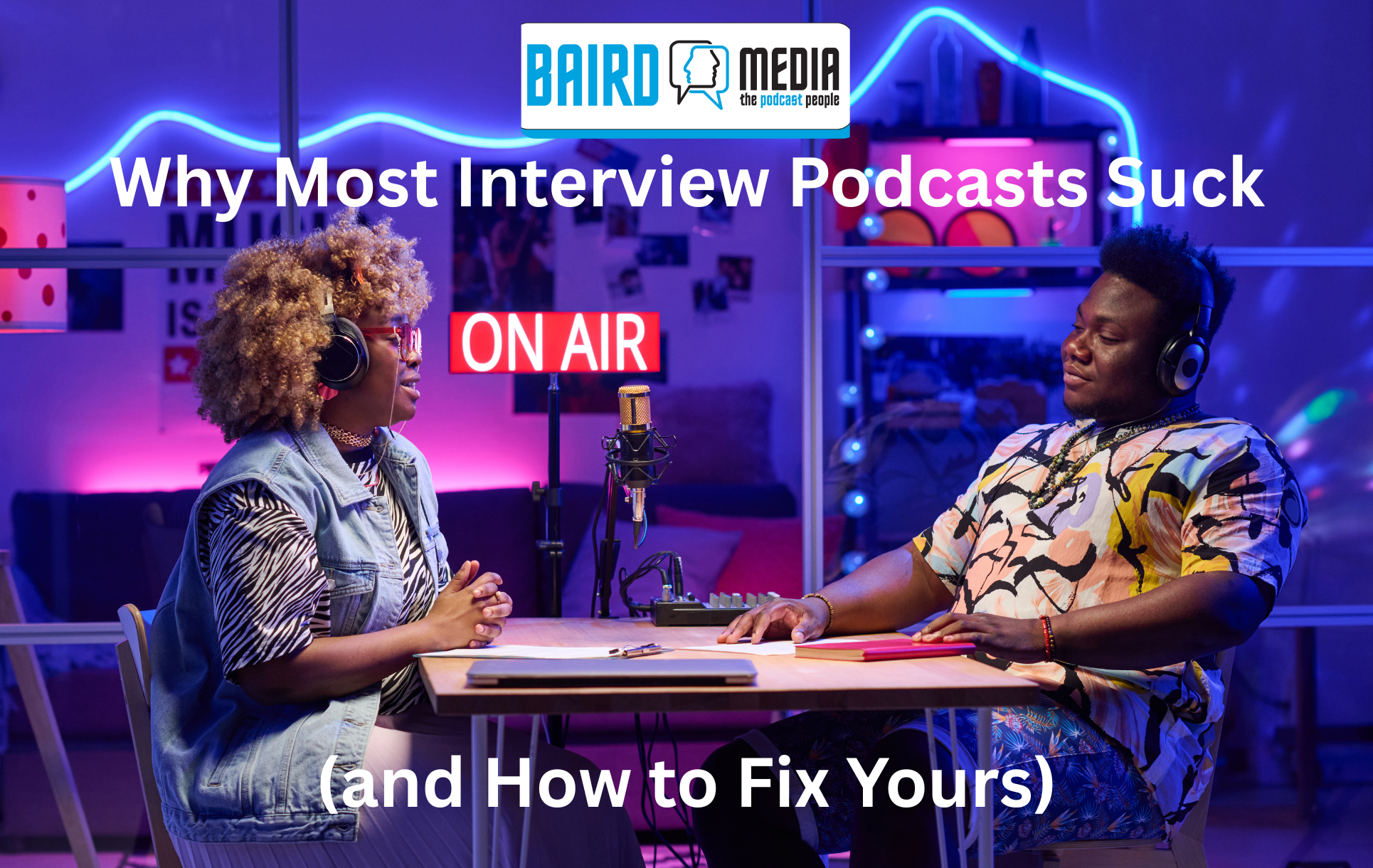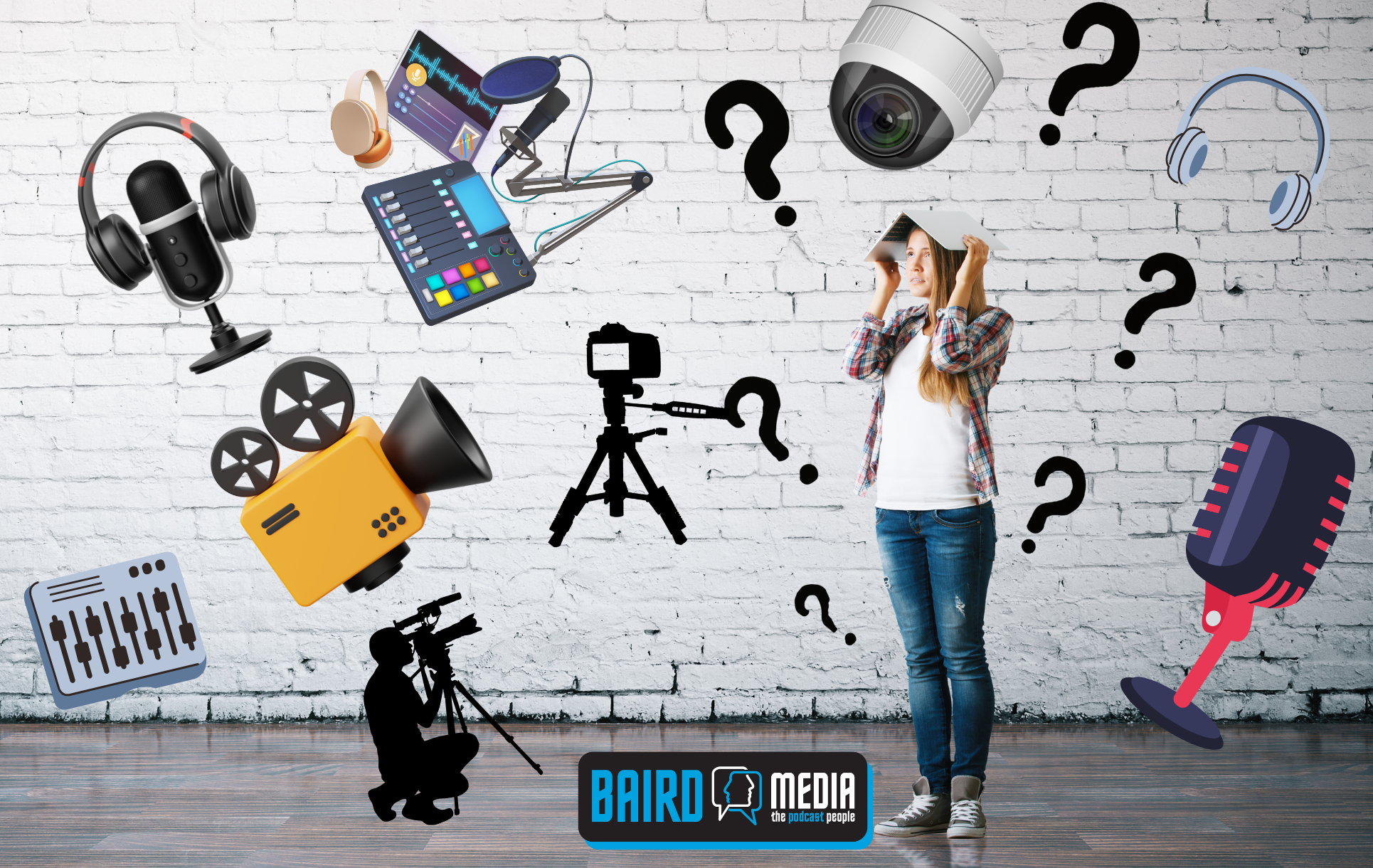

Podcasting has come a long way since its early days as an audio-only format distributed via RSS feeds.
Once the domain of independent creators and radio enthusiasts, it has now expanded into a broader digital media landscape, incorporating video, social media, and platform-specific distribution.
But with YouTube interviews, TikTok snippets, and live-streamed discussions all calling themselves “podcasts,” the big question remains: What is a podcast today?
In the latest episode of Become a Podmaster, hosts Hendrik and Ethan tackle this question, exploring how the definition of podcasting has evolved, what it means for creators, and whether we need to redefine the term entirely.
Originally, a podcast was a series of spoken-word digital audio files made available for streaming or download, typically distributed via an RSS feed.
This feed-based model allowed users to subscribe and receive new episodes automatically—giving podcasts their unique identity as an on-demand medium.
For many purists, this definition still holds true. In the episode, Shannon Kennedy of Solid Gold Podcasts & Audiobooks explains that she still considers a podcast to be an audio-first storytelling medium, hosted on an RSS feed.
But while this technical definition remains valid, the way people experience podcasts has changed dramatically.
As YouTube, Spotify, and Apple Podcasts have expanded their offerings, podcasting has blurred the lines between audio, video, and social media.
Gavin Kennedy points out that the word “podcast” has evolved beyond its technical roots. Instead of simply describing RSS-based audio content, “podcast” has become a signal of independent content creation.
This shift has led to major questions:
The answer largely depends on perspective.
While some argue that podcasts must be audio-first, others believe that if the content is on-demand and creator-driven, it fits within the podcasting umbrella—regardless of format or platform.
The past few years have seen an explosion of video-first podcasts, with many creators opting to record interviews and discussions in a visual format while still releasing audio versions.
Some of the biggest podcasts in the world, including The Joe Rogan Experience and Podcast and Chill with MacG, are primarily consumed on YouTube—a platform that was never designed for traditional podcasting.
This shift has changed audience expectations.
Today, when people hear the word “podcast,” they often think of a video interview rather than an audio experience.
Some argue that this threatens podcasting’s roots, while others see it as a necessary evolution that makes the format more accessible to broader audiences.
For those looking to start or grow their podcast, these shifting definitions matter.
Understanding the evolving landscape of podcasting can help with:
Audience Targeting – Knowing where your listeners (or viewers) consume content helps in choosing the right platforms.
Monetization Strategies – Sponsors and advertisers may expect both audio and video versions of your podcast.
Content Strategy – Adapting to new formats while maintaining an authentic podcasting experience is key.
Hendrik and Ethan emphasize that while podcasting originated from radio-style audio content, it is now becoming a multi-platform, multimedia experience.
Whether you embrace video, stick to audio, or experiment with new formats, the most important thing is to deliver high-quality, engaging content that resonates with your audience.
As podcasting continues to evolve, its definition is no longer black and white.
While RSS feeds and audio-first content remain fundamental, the rise of video, YouTube distribution, and direct-to-platform content means that podcasting is now as much about experience as it is about format.
Ultimately, podcasting is what creators and audiences make of it. Whether you prefer traditional audio storytelling, video-first productions, or a mix of both, the key takeaway from this discussion is that flexibility and adaptation are essential in today’s digital content landscape.
Want to dive deeper into this conversation?
Listen to the full episode of Become a Podmaster and join the discussion on LinkedIn.
Your voice is your brand. Your podcast should sound like it.
We help creators, coaches, and businesses make shows that stand out – for the right reasons.
Book a free consultation and let’s build something powerful.


© Baird Media 2025